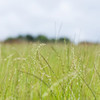Rothamsted Research and the NFU convened a workshop identifying the key areas of focus in order to have a world leading agriscience sector in the UK after Brexit.
Rothamsted Research and the NFU convened a workshop identifying the key areas of focus in order to have a world leading agriscience sector in the UK after Brexit.
Rothamsted Research and the NFU convened a workshop at Rothamsted Research amongst leading agricultural science, technology and knowledge transfer organisations in the UK. The workshop discussions focused on identifying the key areas of focus in order to have a world leading agriscience sector in the UK after Brexit. The statement below summarises the emerging recommendations from the workshop.
Recommendations
The case for investment in the agrifood science base has been made by the AgriFood Technology Council and Industrial Strategy Challenge Fund consultation. In a UK outside of the EU, agricultural science and research has an opportunity to work to an improved model and become more effective at delivering what is needed. On the basis of the UK government not contributing to the EU budget and CAP, a proportion of the available budget should be invested in agricultural science in the UK in order to make farming highly competitive in the new market environment. Building on the success of the AgriTech strategy, there are potentially opportunities ahead for investment models in agricultural science in order to maintain the UK as a leader in the field internationally. To achieve high-returns of that investment, the following interlinked issues and challenges must be addressed, by Government, research community and private sector:
Improved funding models and mechanisms should be set up, which will:
- Facilitate and encourage greater collaboration and accelerate leaner science with more concrete outputs by being more strategic, simpler, less bureaucratic, and more joined-up and accessible;
- Balance better between the needs of fundamental, applied and translational research and development, specifically addressing the particular needs of agriculture for longer term approaches;
- Be based on an agreed calculation of how much the UK should be spending on agricultural research, relative to our competitors and to meet our productivity, efficiency and environmental goals; Enable continued access to EU and international funding streams, through negotiating the optimum status and position of the UK in mechanisms such as Horizon 2020;
UK agriscience must look at and learn from funding mechanisms that are working well in other countries, in other sectors and at various scales, including models that are demand-driven and better integrate levy-based support for research, knowledge exchange and skills development with government investments.
Policy across all parts of Government and its agencies should be aligned to deliver an improved model for agriscience, through:
- Being very clear about what the challenge and goals are for UK agriculture, and ensuring research and innovation strategies can support and deliver solutions;
- Demonstrating return on investment of agricultural research in terms of performance and competitiveness, for businesses, economy, environment and wider society; This will also require better impact measures and incentive systems for science organisations and scientists.
- Attracting a skilled labour force for science, industry and farming;
- Channelling investment programmes within new domestic agriculture policy to support KE, extension, on-farm innovation and adoption of new practices and technologies;
UK policy should seek to provide effective frameworks that are conducive for both responsible innovation and international competiveness.
Collaboration and join-up should be increased, between:
- Research organisations, including Agritech Centres
- Funders and their funding mechanisms
- Public/academic, private/industrial sectors, including farm businesses and NGOs
- Countries, in EU and internationally
- Government departments and agencies, and their policies
Effective coordination and collaboration will require long term and reliable funding mechanisms, demonstrating value, driving culture change, providing career opportunities and facilitating genuine knowledge exchange (KE) between and within all these “parties”.
Outcomes and measures of success in better collaboration, funding and policy include more impactful research, with faster adoption, greater return on investment, long term wealth creation, boosting agricultural productivity, and leading to more innovative farm businesses able to seize new opportunities and adapt to change.
Notes to Editors
The following organisations attended the workshop and engaged in the development of these recommendations:
ADAS
AHDB (Agriculture and Horticulture Development Board)
Agrii
Agrimetrics
Agri-Tech East
AIC (Agricultural Industries Confederation)
AICC (The Association of Independent Crop Consultants)
Bayer AG
CPA (Crop Protection Association)
Cranfield University
Harper Adams University
IBERS (Institute of Biological, Environmental and Rural Sciences)
Innovate UK
John Innes Centre
LEAF (Linking Environment and Farming)
NFU (National Farmers’ Union)
NIAB (National Institute of Agricultural Botany)
Rothamsted Research
BBSRC and Defra representatives as well as Anthea McIntyre, MEP West Midlands, attended the workshop as observers.






